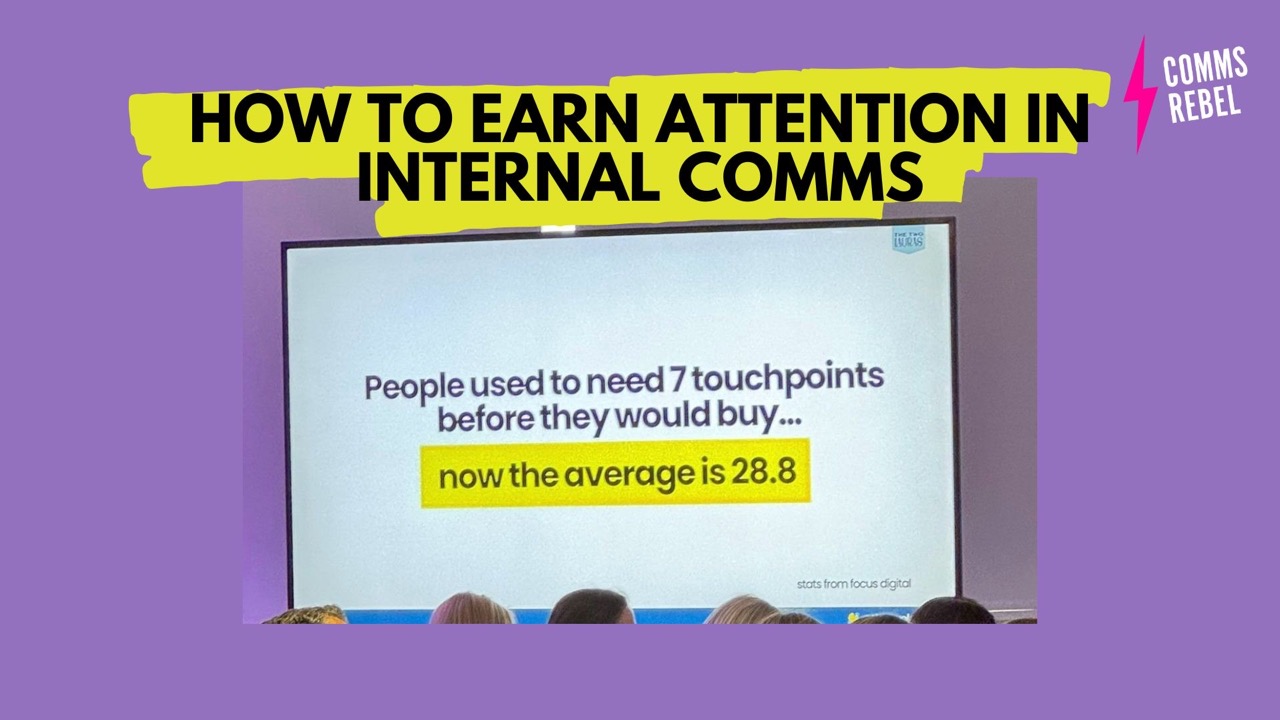If you’re reading this blog then it’s likely you’ve been in a situation where you have felt like your expert advice has been ignored at some point. I can certainly relate, and I know how much it can knock our confidence and our imposter tries to convince us that we’re not quite good enough to be heard. Sound familiar? So what can we do to stop us spiralling into despair?
Everybody likes to be heard – as communicators we talk about actively listening to our colleagues and then taking action on their feedback every single day. Kevin Ruck has written an extremely insightful blog here on the ‘Who’s Listening?’ IABC research. In this blog, he has shared some top tips on what it means to listen properly across our organisation and how you can move across the spectrum from passive to deep listening.
But what about you as a trusted advisor supporting your leaders? How do you make sure that senior executives and the CEO listen to what you have to say? To try and understand the ‘other side’ I asked a couple of clients and friends who are senior directors (not comms) to see what their point of view was and their thoughts on active listening. Using their feedback, my experience and some fab tips shared on Twitter by my network, below are five tips that will help you:
1) Put yourself in their shoes: This advice was shared by almost everyone I spoke to, and I often try to remind others of this as well. “I have 101 things happening in my world on a normal day, but with this crisis plus pressures in the organisation I need people to understand that I have other priorities,” said one executive director.
Be aware of what might be happening in that executive’s world – there will be things going on that you won’t know about and even though it’s important to you, consider where that request may sit on their to-do pile. This is why it’s so important that you get to know your leadership team. You need to understand how they work, the level of detail they like, what areas they champion. Even knowing what days you are likely to get some time from them is important. In one organisation I knew a leader always went to his son’s football game on Wednesdays and he had to be out of the office by 4.00 pm – so I avoided booking meetings with him on Wednesday afternoons and made sure my team didn’t either.
@andrewhesselden: “Just to try and get into the shoes of the leader. To understand their pain points and then make the IC solution you propose speak to that.”
2) Be concise: Not being clear on what you need from senior leaders can cause some frustrations, and they can tune out of what you’re trying to say. Some of the directors said that it could be ‘irritating’ and ‘annoying’ when someone can’t articulate precisely what they need from them.
Always make sure you have your points written down before you head into a meeting with the director. Explain the context, tell them what action you need from them and be clear on what you’re asking for – a wise person once told me: Be Bold, Be Brief and Be Gone – that’s something that’s always stuck with me.
3) Speak their language: this was popular advice on Twitter and I agree.
@beabuckley18 said: “Talk their language – pros & cons are good, sometimes you need to spell out the potential commercial loss, if it’s a reputation risk show them egs of similar stories in the media. Sometimes, frustratingly, it’s something going wrong that ultimately leads to them listening more.”
@ellminty: “Speak their language, not ours/yours”
@Vision2Voice: “Storytelling and education. Leaders don’t know what we know. Help them understand. I love telling leaders about the $1M problem I solved.”
4) Use data to back up your point: This is something that’s tried and tested – and it works. Your ‘gut feeling’ is fine if you have built up a solid relationship with your leadership team and they trust you explicitly but to get to this stage takes time and your gut is not always a reliable source. An HR Director said “I like to see evidence on why I should take a chance on an idea. At the end of the day, it’ll be me who will have to deal with the fall out with the rest of the execs if it all goes wrong, so I want to make sure that if I’m asked to back an idea I have all the information I need.”
@Kaz_Elgood also agrees: “From an internal perspective, I think it helps if you have evidence of what has worked (or failed) in the past – whether it’s numbers or verbatim. Measurement is always something to have in your back pocket!”
5) Give them time: Sometimes we can be very guilty of filling in those quiet moments in meetings with words that are completely unnecessary. Say what you need to say and give them time to reflect and come back to you.
@rfzeitlin: “I suspect sometimes what seems like not listening is actually just leadership deciding. Comms is not always part of the actual decision making, so not always aware of other factor taken into account. Hence why strategic-level comms is so important. Both for context & effect.”
A CEO I spoke to said: “Sometimes I just need time. I need time to absorb the information and understand what impact it will have on the business overall. I may not be able to say yes, straight-away, but that doesn’t mean I’m not listening.”
Hopefully, those tips are useful, if you have something else to add, then please tweet me @advita_p or drop me a message on LinkedIn.
If you’re looking for some help with understanding measurement, need additional support with transformation programmes or communication planning and campaigns, then get in touch and let’s have a chat on how I can help you – click here to book in a chat.


